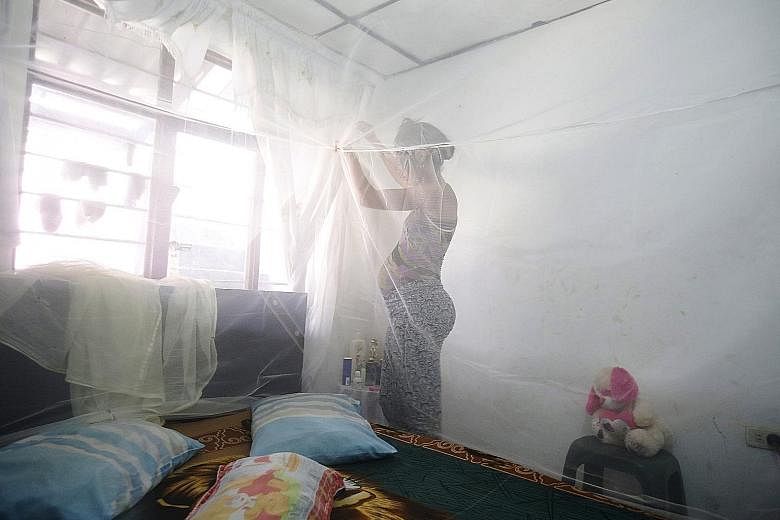GENEVA • The World Health Organisation (WHO) advised pregnant women not to travel to areas with ongoing outbreaks of Zika virus due to the potential risk of birth defects.
It said that sexual transmission is "relatively common" and health services in Zika-affected areas should be ready for potential increases in cases of neurological syndromes such as microcephaly and congenital malformations.
"Pregnant women, whose sexual partners live in or travel to areas with Zika virus outbreaks, should ensure safe sexual practices or abstain from sex for the duration of their pregnancy," the WHO said in a statement on Tuesday, based on advice from its Emergency Committee of independent experts.
The link between Zika and microcephaly, where babies are born with small heads and developmental problems, as well as Guillain-Barre syndrome, which can cause paralysis, has not been proven but studies point in that direction, it said.
"Microcephaly is now only one of several documented birth abnormalities associated with Zika during pregnancy," WHO director-general Margaret Chan told a news conference. "Grave outcomes include foetal death, placental insufficiency, foetal growth retardation and injury to the central nervous system."
Brazil said it has confirmed more than 580 cases of microcephaly and considered most of them to be related to Zika infections in the mothers. The country is investigating an additional 4,100 suspected cases of microcephaly.
"What we see in Brazil now is what could occur in Colombia and other countries in the next few months and it's very alarming," said Mr David Heymann, who chairs the WHO Emergency Committee set up on Feb 1. The WHO said airports should be sprayed to eliminate mosquitoes and their breeding grounds.
"Reports and investigations from several countries strongly suggest that sexual transmission is more common than previously assumed," said Mr Bruce Aylward, WHO executive director for outbreaks and emergencies. He told reporters that sexual transmission had been documented only as spreading from men to women.

